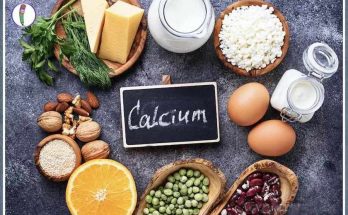Holding our friend’s hand in difficult times, hugging our child when he / she hurts, touching the shoulder to show that we support the other person and that we are always there for them… Touching is perhaps one of the most effective methods of interpersonal communication. It even shows that it reduces the risk of death.
Last year, we talked about pandemic nurses. It was a fact that the nurses, who held the hands of the patients for hours, supported them. In fact, we all knew that touching, holding hands and hugging relieved us, but when we heard it from the nurses’ mouth, we also did it.
A recently published scientific study also proved that holding hands lowers our Stress levels. In a study conducted by Arizona State and Brigham Young Universities in the USA on 83 couples, participants watched a horror movie and the state of their pupils was monitored.
In case of stress, the students of the eyes grow rapidly to see better, so in the study where the pupils of the participants were measured, it was seen that those who held their partner’s hand were at a lower stress level than those who did not hold anyone’s hand. If the relationship between the couple was strong, the stress level of the person decreased even more.
Many studies at different levels over the years show the positive effects of sensual contact on one’s physical and mental health. Many results are revealed, from the fact that the sensual contact made by a loved one or in cases where the person consents, prolongs the lifespan and reduces the pain.
Neurologists say that all of this works through the brain chemical-hormone called oxytocin. Oxytocin produced by the hypothalamus increases 2-3 times at the moment of the Sensual Contact, then it is released into the blood through the pituitary gland and triggers the feelings of trust and compassion in the person. It also strengthens social ties.
This is a double-sided effect. Whoever hugs, it affects both sides. Oxytocin is released when we pat a child’s head, hug friends, and erotic touches between couples. This hormone starts to decline after about 6 minutes, but its effects continue. As the contact area increases, so does the stimulation, so the level of oxytocin naturally increases. So let’s say that if oxytocin increases by 10 units in a simple handhold, it increases by 40 units during kissing and 80 units during orgasm.
Oxytocin has a number of benefits not only on our emotions, but also physically. The moment when this hormone is secreted the most is the moment when the child comes out of the womb during birth. This strengthens the bond between mother and child. But even more interestingly, many animal and human experiments show that it also accelerates the healing of wounds due to its anti-inflammatory (anti-inflammatory) properties. In other words, birth traumas heal faster in women who give birth normally. People with high oxytocin hormone levels also have a high pain threshold. It helps women get through an extremely painful process such as childbirth. This is the reason why we hold the hands of people who feel pain/pain and hug them.
We can connect more easily with the people we come into contact with. In this way, we easily fight stressful situations because we feel more secure. When we feel safe, we are open to discovery. Those who hug their partners before the job interview enter the interview with less stress and are more successful. Because touch improves our ability to focus. When children fall and hurt, hug them. Thus, they will easily get over the trauma, and the time to return to the game will be shortened.
Oxytocin released into the blood during skin contact also reinforces people’s memories. If oxytocin is not released during a memory
it becomes difficult to remember those memories for many years. Hugging your lover is unforgettable because oxytocin staples this memory to our brain.
This hormone is also released during sexual intercourse, and peaks at orgasm. It creates a feeling of bond between spouses and a safe environment, and provides calming. As a result, after orgasm, a slight relaxation, which we call sedation, brings sleepiness.
Oxytocin prolongs the time it takes to look at the other person’s face. According to studies, when children with autism are given oxytocin, their rate of looking at the face increases.
In psychology, there is a practice called hug therapy between couples. With this work, trust, compassion, the ability to listen to each other and tolerance increase.
Estrogen slightly increases the release of oxytocin, so this hormone is higher in women. Therefore, women are more compassionate; men are more prone to violence and men are more likely to get autism.
When oxytocin increases, dopamine hormone increases, which enables us to be extraversion, creativity, artistic skills, and curiosity about new things.
In cases of pain and stress, the hormone cortisol rises in our body. It is also called the fight-flight hormone. With this hormone, blood pressure increases, the heart accelerates, and pupils dilate. This increases the feeling of uneasiness and restlessness in the person. With sensual contact, the person feels safe and then the happiness hormones serotonin and endorphins are released. This has the opposite effect of cortisol. In other words, it slows down the heart rate, lowers blood pressure, relaxes the vessels, and prevents tremors and palpitations. The person feels happier.
To deal with stress and pain
Hug
From the Department of Psychiatry at the University of North Carolina, Dr. In a study by Karen Grewen in 2003, approximately 100 couples were divided into 2 groups. One group held hands for 10 minutes and hugged for 20 seconds. Couples in the other group sat in silence for the same amount of time. It was observed that blood pressure and heart rate were lower in the first group compared to the other group.
Kissing
A Lafayette College study showed that kissing lowers cortisol levels by dilating blood vessels and relaxing blood flow.
Holding hands
James Coan, a psychology professor at the University of Virginia in the USA, says that as a result of his studies for years, holding hands keeps us away from stress and creates positive results on our health. Coan, who also gave a lecture titled “Why do we hold hands” at the university, found that the perception of threat is perceived differently in women’s brains in a study conducted among women who do not hold hands, women who hold the hand of someone they do not know, and women who hold the hand of their husbands. It revealed that the stress and threat perception of those who hold their spouse’s hand in particular decreased.
Another study conducted this year at the Department of Urology at Shanghai Jiao Tong University in China showed that men who had a prostate biopsy reduced their feelings of anxiety and pain if they held the hand of someone they knew.
Lovemaking
The study published by Tel Aviv University in Israel proved that returning to or increasing the frequency of sexual activity in the first 6 months of heart attack can reduce the risk of death by 35 percent.
Visits: 62




